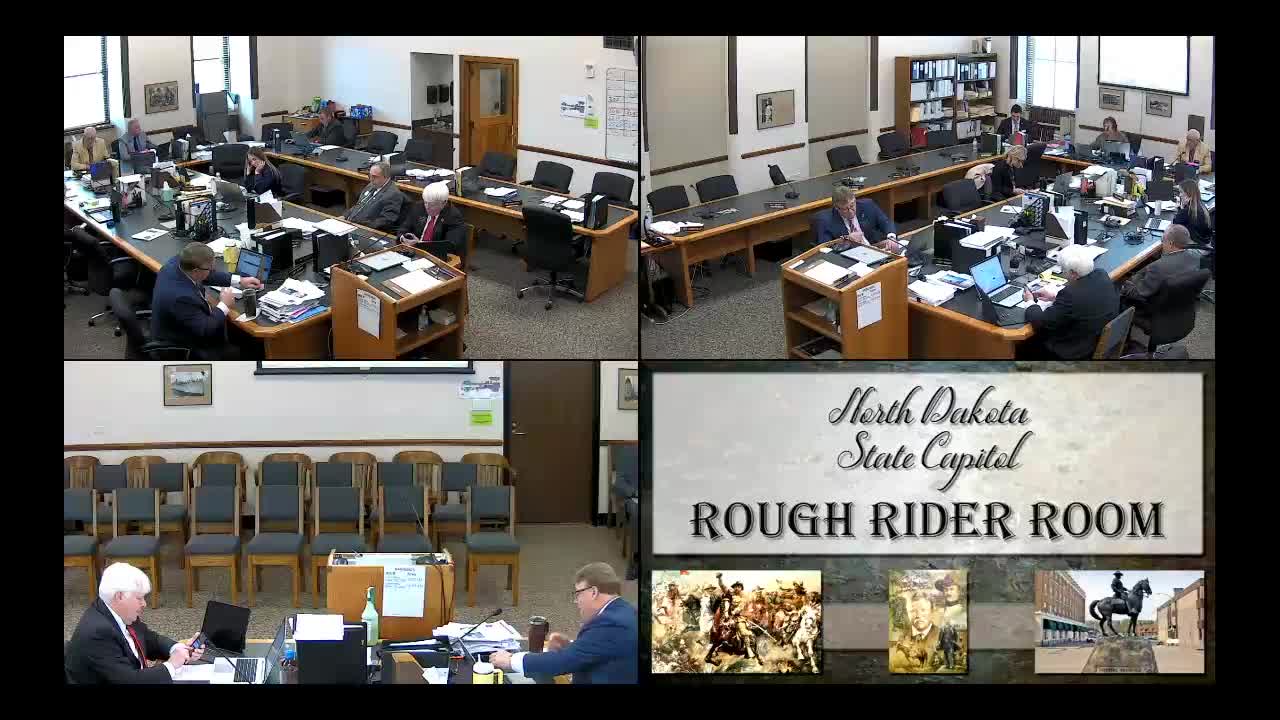Appropriations committee backs funding for juvenile fitness-to-proceed evaluations and lack-of-criminal-responsibility exams
Get AI-powered insights, summaries, and transcripts
Subscribe
Summary
The Human Resources appropriations subcommittee recommended funding two Senate bills—one with $500,000 for juvenile fitness-to-proceed evaluations and remediation and a second with $300,000 for juvenile lack-of-criminal-responsibility evaluations—after questioning capacity, cost estimates and service delivery.
The Appropriations — Human Resources Division on Wednesday recommended funding for two related Senate bills that would create and pay for juvenile forensic evaluations and short-term remediation services.
Jonathan Alm, attorney with the Department of Health and Human Services, told the committee the two bills under review—Senate Bill 2,036 and Senate Bill 2,037—address separate but related parts of juvenile forensic work: fitness-to-proceed evaluations and remediation services (bill 2,036) and juvenile lack-of-criminal-responsibility evaluations (bill 2,037). “North Dakota does not have remediation services, so this would be new in the bill,” Alm said, describing remediation as “a process of providing learning opportunities, services and supports to achieve fitness to proceed.”
Committee members focused on cost, capacity and where services would be performed. The appropriation in 2,036 is $500,000; Alm said most of that money would pay for evaluations and for remediation that can run up to 120 days and must be delivered “in the least restrictive available environment.” The appropriation in 2,037 is $300,000 and would fund contracting for juvenile lack-of-criminal-responsibility examinations.
Representative Murphy pressed staff on how the $500,000 figure was derived and what would happen if the amount proved insufficient. Alm said the bills carried direct appropriations and that the department can move funds between line items if available; he also said the department could request additional funding in the 2027 legislative session if needed. Alm noted an effective date in one bill of Jan. 2, 2027, and told the committee that building provider capacity would take time and that spending would be phased as contracts and services ramp up.
Officials and legislators discussed where evaluations and remediation could occur. Alm said current forensic evaluations are done at the state hospital and that remediation “would not be able to be provided in the state hospital.” He said some evaluations could be performed by trained clinicians in certified community behavioral health clinics (CCBHCs) or by regional providers, but that those clinics would need staff with training in forensic evaluations. The department said it might contract with a single provider or with providers in eastern and western parts of the state.
Committee members also asked whether the bills would generate revenue; Alm said evaluations and lack-of-criminal-responsibility examinations cannot be charged to clients and are not revenue-generating. The committee reviewed recent case counts the department provided: for the fitness-to-proceed item underlying 2,036 the department reported 16 juveniles in 2023, 16 in 2024 and six so far in 2025; for the lack-of-criminal-responsibility item underlying 2,037 the department reported 13 juveniles in 2023, 18 in 2024 and four so far in 2025. Alm cautioned that passage of the bills could increase demand as attorneys and courts become more aware services are available.
On process, Representative Steeman moved an amendment to 2,037 to clarify statutory cross-references and correct language that had incorrectly described the funding purpose; Representative Murphy seconded. The amendment passed on a roll call, 8-0.
After additional committee discussion about fiscal risk and implementation, the committee voted to recommend re-engrossed Senate Bill 2,036 to the full appropriations committee. The motion carried on a roll call, 6-2 (yes: Chairman Nelson; Vice Chairman Steeman; Representatives Berg, Mitscog, Murphy, and O'Brien; no: Representative Anderson and Representative Wagner). The committee then recommended re-engrossed Senate Bill 2,037 as amended; that motion also passed on a roll call, 6-2 (yes: Chairman Nelson; Vice Chairman Steeman; Representatives Byrd, Mitscog, Murphy and O'Brien; no: Representative Anderson and Representative Wagner).
The committee did not vote on specific provider contracts or provider locations; members directed staff and the department to consider contracting approaches that would provide services as close to the child’s home as feasible and to explore telehealth options for evaluations. Alm and committee members noted that if funds are reallocated into these new lines, other service lines could see reduced funding and that could generate audit attention.
Votes at a glance: - Amendment to Senate Bill 2,037 (clarifying statutory cross-reference and funding language): mover Representative Steeman; second Representative Murphy; outcome: approved, 8-0. - Motion to recommend re-engrossed Senate Bill 2,036 (appropriation $500,000 for juvenile fitness-to-proceed evaluations and remediation): mover Representative Steeman; second Representative O’Brien; outcome: approved, 6-2 (see roll call above). - Motion to recommend re-engrossed Senate Bill 2,037 as amended (appropriation $300,000 for juvenile lack-of-criminal-responsibility evaluations): mover Representative Steeman; second Representative O’Brien; outcome: approved, 6-2 (see roll call above).
Implementation notes: the department said it expects to phase spending as contracts and provider capacity are established, that some evaluation work can be done by telehealth, and that remediation must be provided outside the state hospital in the least restrictive setting. The department also said it has the flexibility to move funds between line items if additional resources are required before the next legislative session.
